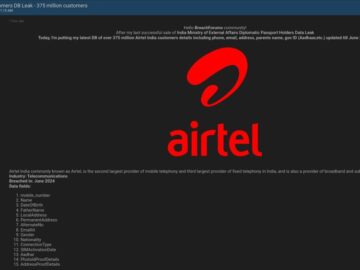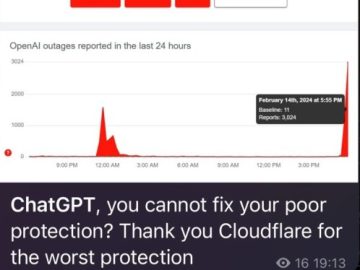In a recent Cybersecurity update, NATO is dealing with the repercussions of a supposed cybersecurity incident targeting the documents on its websites, which could lead to a revelation of loopholes in the alliance’s cybersecurity architecture.
According to several news reports, NATO Data Breach conducted by a hacker gang SiegedSec, enabled it to steal some 3000 key military plans and surveys from the alliance.
This revelation comes during Cybersecurity Awareness Month, highlighting the stark need for stringent cybersecurity policies and cyber-awareness across the globe.
Organization ‘actively addressing incidents’ of NATO Data Breach
According to CNN, the data stolen from NATO Data Breach, which has been posted on Telegram over the past week, covers a range of critical topics including hypersonic weapons, drone threats, and procedures for radioactive waste testing.
NATO, in response to these cyber intrusions, has stated that it is “actively addressing incidents” affecting the NATO documents and has implemented additional cybersecurity measures.
Fortunately, NATO has assured the public that the NATO Data breach has not impacted its missions, operations, or military deployments.
SiegedSec Takes Responsibility of NATO Data Breach
According to Daily Dot, SiegedSec claims to have leaked over 3,000 files from NATO, originating from various portals, including the “NATO Learning Management System” and the “Lessons Learned Portal”.
Some of these files pertain to guidelines for protection and decontamination from chemical, biological, radiological, and nuclear threats.
The content is intended for official use only among NATO and Five Eyes intelligence alliance nations. It remains uncertain whether the leaked data contains any information that is already publicly available.
SiegedSec, described as a “hacktivist” group, leaked the stolen documents on the social media platform Telegram, proudly claiming their actions. This marks the second time in three months that SiegedSec has targeted NATO’s confidential data.
While the group’s motivations remain unclear, they are known for their history of politically motivated hacking, often targeting government websites, particularly in the United States, reports Daily Dot.
Security Concerns Post NATO Data Breach
As per the report published by Daily Dot, the NATO Data Breach has raised concerns over the security of Western governments’ digital infrastructure as they share intelligence amid ongoing geopolitical tensions, such as Russia’s conflict with Ukraine.
Earlier this year, an Air National Guardsman was arrested for allegedly posting classified documents related to the war in Ukraine online, further emphasizing the significance of maintaining robust cybersecurity measures.
This incident follows a previous breach of NATO’s online infrastructure by SiegedSec in July, during which the group claimed to have accessed unclassified documents. These documents included agency personnel names and contact information.
SiegedSec has gained notoriety for its politically motivated hacks, targeting government websites in various states, including Texas, South Dakota, and Nebraska, often focusing on issues related to gender-affirming care and abortion. The group views its actions as a form of protest against government policies, reports The Record.
NATO has emphasized its commitment to addressing cybersecurity threats, stating that it takes these matters seriously and has implemented additional security measures. Nevertheless, the breach serves as a stark reminder of the ongoing challenges faced by organizations and governments in safeguarding their digital assets against determined and politically motivated cyber attackers.
The alleged NATO data breach by the hacking group SiegedSec underscores the persistent cyber threats faced by international organizations and governments. It highlights the importance of maintaining robust cybersecurity measures in an increasingly interconnected world, where the consequences of breaches can be far-reaching.
Media Disclaimer: This report is based on internal and external research obtained through various means. The information provided is for reference purposes only, and users bear full responsibility for their reliance on it. The Cyber Express assumes no liability for the accuracy or consequences of using this information.




